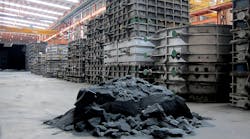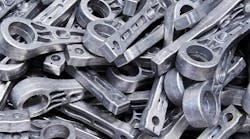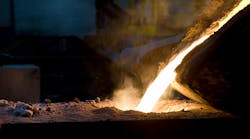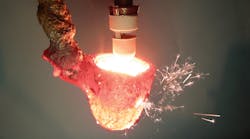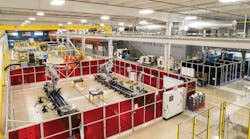The U.S. Department of Labor's Occupational Safety and Health Administration (OSHA) has proposed penalties totaling $60,000 against Citation Corp. for safety and health violations at its foundry in Brewton, AL. "This employer is failing its employees by not protecting them from overexposure to silica, which can cause silicosis, an irreversible respiratory disease," stated OSHA area director Ken Atha.
Silica is a basic element of sand, which is commonly used in foundries for molding, as well as a blast cleaning. Citation produces ductile iron castings for automotive applications.
OSHA inspectors cited Citation Corp. for two repeat violations after finding that employees were exposed to excessive levels of silica, and that Citation failed to provide the engineering controls needed to reduce employees' exposure level. Also, the agency found that the company did not conduct annual tests to ensure that employees’ respirators were fitted properly. These violations carry penalties of $50,000.
The original violations were cited by OSHA in 2006. Repeat citations are issued when an employer previously has been cited for a substantially similar hazard, and those citations have been ruled final. A serious citation is issued when OSHA determines death or serious physical harm is likely to result from a hazard that the employer knew (or should have known) needs correcting.
Citation was cited for three, new serious safety violations that carry proposed penalties of $10,000 for exposing employees to electrical and fall hazards, by not maintaining dry floors, by not ensuring unused electrical openings were effectively closed, and not providing strain relief on electrical cords.
The company has 15 business days from receipt of the citations to contest them and the proposed penalties before the independent Occupational Safety and Health Review Commission.
Latest from Materials
Latest from Materials
Melt/Pour
Modeling Aluminum Oxidation
Feb. 27, 2024
Materials
Quiz: Know the Metals!
Aug. 29, 2023
Issues and Ideas
OSHA Cites Schumann for Blast
Aug. 22, 2023
Melt/Pour
Reducing Alloying, Improving Castability
July 17, 2023
Materials
SinterCast CGI Volume Hits a New High
July 11, 2023
Issues and Ideas
LIFT, DoD Renew Co-Op
May 17, 2023

